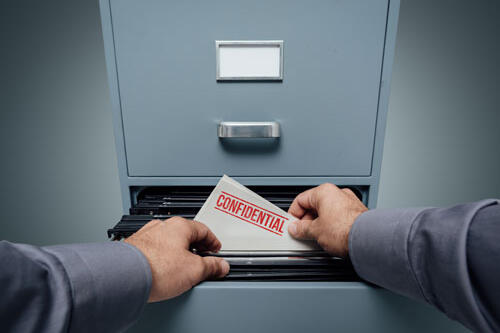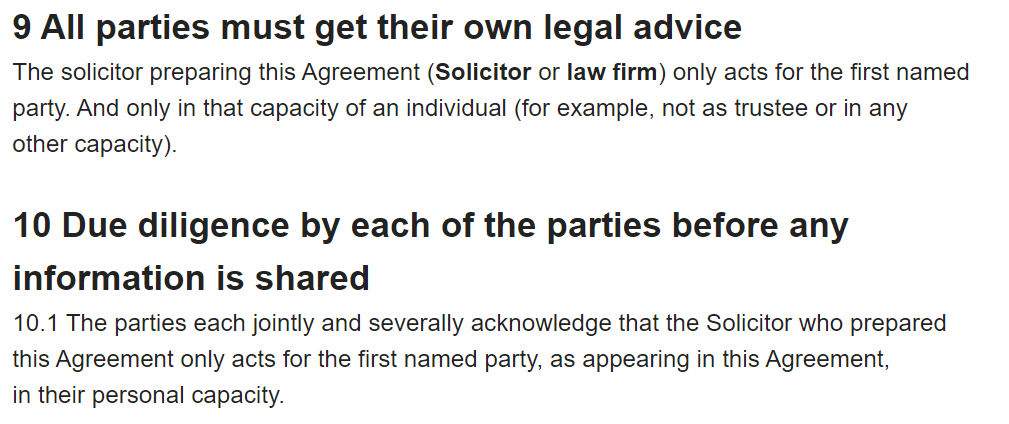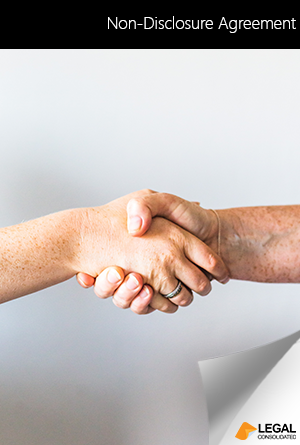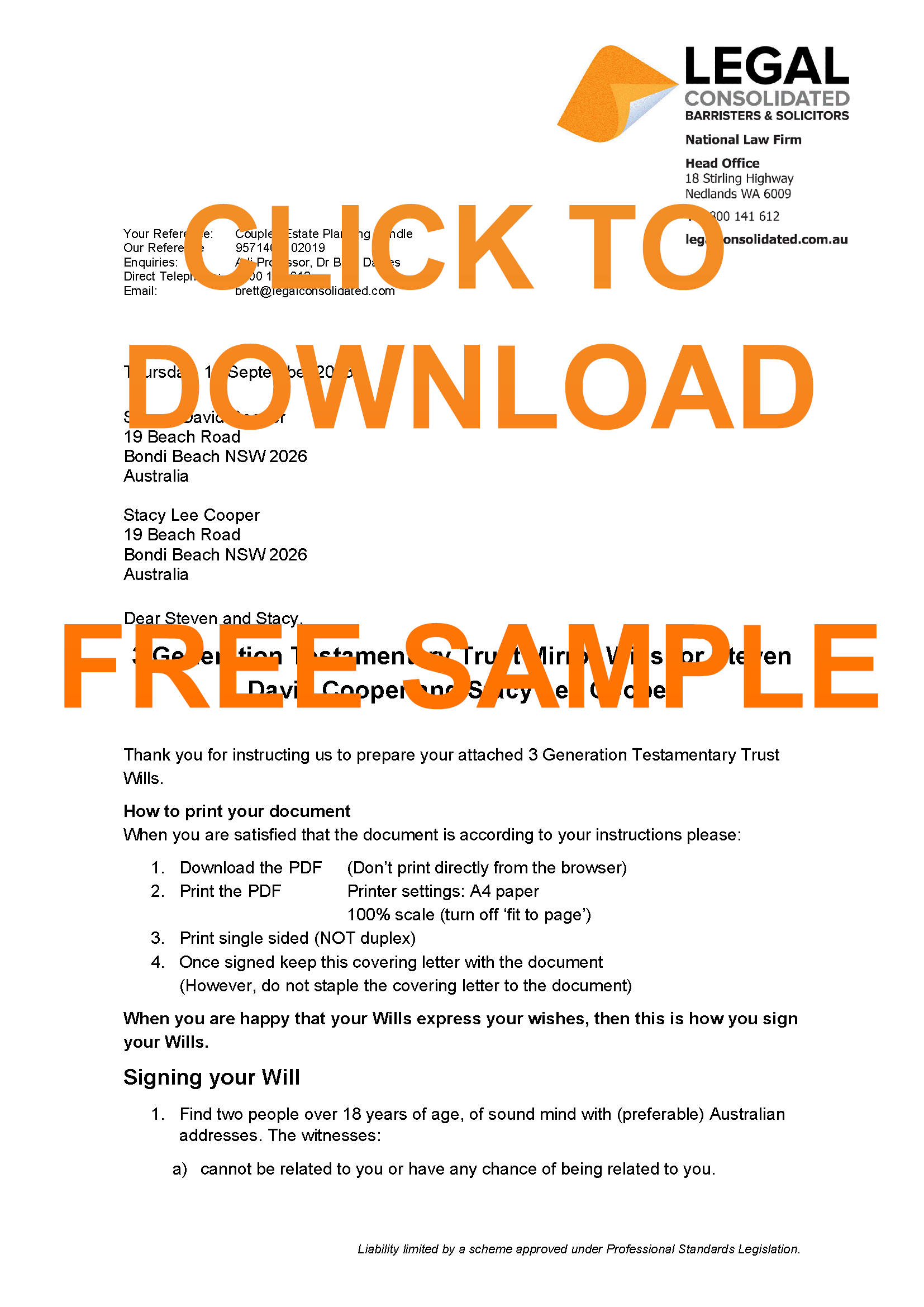Are Mutual Non-Disclosure Agreements better?
Your successful business has an excellent business model. You have wonderful staff, clients, suppliers, systems and know-how. You are the only person that knows who they all are and how it all works. Someone wants to be involved with you. But first, you have to share some of those secrets. They may also have to share some secrets about what they do. A Legal Consolidated Non-Disclosure Agreement (NDA) to the rescue.
Perhaps you are a financial adviser and see the opportunity to join forces with another adviser. Or you may be a large accounting practice and want to talk with a young turk with a few clients. Either way, you need to speak openly but client bases and systems must remain confidential.
The highest form of protection is a Mutual Non-Disclosure Agreement
The Courts are more likely to uphold a Confidentiality Agreement if it is ‘mutual‘. This means that both sides respect each other’s private information.
“Show me what you have. I will show you what we have. Your information and my information is kept secret and confidential. We respect your information. You respect our information.”
Press the blue-button above to start the free building process of a Legal Consolidated Mutual NDA. Read the hints for every question. Watch the training videos. Telephone the law firm if you need a hand answering the questions.
Other names for a Mutual Non-Disclosure Agreement:

The Non-Disclosure Agreement protects all parties that sign it.
- Non-compete agreement (NCA)
- Confidentiality agreement (Confi)
- Confidential disclosure agreement (CDA)
- Proprietary information agreement
- Secrecy agreement
- Mutual Confidentiality Agreement
- Non-use agreement
- Non-Disclosure and Non-Use Agreement (highest form of protection)
- Trade Secret Agreement
Benefits of Mutual NDAs
Mutual NDAs stop:
- stealing followed by exposure of your secrets to competitors
- headhunting your staff (commonly used in an employment contract and Independent Contractors Agreements)
- using your plans
- using your secrets
- because they are “Mutual” the NDA has the highest chance of being enforced in the Courts
“Mutual” NDAs are better
The other side also wants to keep everything secret. The answer: build a Mutual Non-Disclosure Agreement.
A Mutual Non-Disclosure Agreement is a promise not to disclose confidential information about one another.
The other side has little confidentiality to divulge? Still, a ‘mutual’ NDA is more likely to be enforced. There was an even ‘bargain’ between the parties. All is fair.
Examples of ‘confidential information’ and ‘secrets’ are:
- business strategies
- business models
- intellectual property
- negotiations
- the winner of a reality television show that is yet to air
- trade secrets
- government secrets
- celebrity secrets
- a scandalous relationship that is not public knowledge
- something that is not of public knowledge and is of value to you or your business
- how to build an electric car in Australia for under $20,000
- how to create a successful online business in other countries
What does a Legal Consolidated NDA protect?
NDAs can be used with your potential employees, partners and contractors. This is to prevent them from sharing sensitive information. Many types of confidential information require an NDA, like:
- Sensitive Information – whether financial or personal
- Systems /Product/ Service Information
- Financial/ Medical Information
- Proprietary Information
- Trade Secrets and methods of doing something
- Business licences
- Intellectual Property, Code-base
- sensitive information, data and metadata
- Plans and Inventions
- innovators of new products
- settlement of workplace sexual harassment cases
Use a Mutual Confidentiality Agreement when you, your company or your business show confidential information or secrets to others. Mutual NDAs are commonly used in business negotiations. This is because it is often necessary to share secrets.
But it is not just about business. It can be an agreement between people that does not involve a business.
Which businesses can use a Legal Consolidated NDA?
A Legal Consolidated mutual NDA is often used in a wide range of industries, such as technology, finance, and healthcare, as well as in business transactions such as mergers, acquisitions, and joint ventures. They can be used to protect trade secrets, business plans, financial information, and other types of sensitive information.
This type of agreement is commonly used when two parties are considering a potential business relationship or transaction and want to protect any sensitive or proprietary information that may be shared during the negotiation process. A Legal Consolidated mutual NDA includes provisions outlining the types of information that will be considered confidential, the obligations of the parties to keep the information confidential, and the consequences of a breach of the agreement.
Do mutual non-compete agreements work in Australia?
In Australia, mutual NDAs are legally binding and enforceable in court. Both parties must sign the agreement and it must be in writing.
The breach of a mutual NDA can result in legal action being taken against the party that breaches the agreement. This can include an injunction to prevent further disclosure of confidential information and damages, including any losses suffered by the other party as a result of the breach.
Keeping sensitive business information secret (such as specialised processes, client lists and trade secrets) is often the difference between your survival or demise.
Australian businesses seek to protect their proprietary information, trade secrets and other confidential information.
Do you know the secret formula for Coca-Cola? What about the secret herbs and spices at KFC? They keep their trade secrets for 100 years. Such persons holding this information are subject to a non-disclosure agreement (NDA). This is also called a confidential or trade secret agreement.
The Legal Consolidated NDA is a legally binding contract. It requires parties to keep confidentiality.
Does a Legal Consolidated Mutual NDA provide both monetary and injunctive relief?
Yes. Legal Consolidated’s NDA provides both monetary remedies and injunctive relief. This stops further breaches from occurring.
What is an ‘injunction’ in a Legal Consolidated Confidential Agreement?
Money as damages may not be enough. You may also need an ‘injunction’.
Injunctions come in several forms. Often, an injunction is ordered to restrain or prohibit. It stops the other side from doing certain things with your confidential information. This is called a negative injunction.
For example, to restrain a publishing house from publishing a book. Or to restrain the publication of your confidential information.
A freezing order is a specific type of negative injunction. It restrains a party from disposing of certain assets or from removing them from the jurisdiction.
Injunctions can also be mandatory. They compel the other side to do a particular thing.
For example, hand back the secret invention design papers.
Legal Consolidated Mutual confidentiality agreements play a vital role in protecting the future of your business.
Who is protected by a Legal Consolidated Mutual Non-Disclosure Agreement?
Some Non-Disclosure Agreements are only ‘one-sided’. This means only one party is protected. However, our law firm’s Non-Disclosure Agreement protects multiple parties. It protects everyone who is party to the agreement. It builds trust between the parties. Everyone is treated equally. It is, therefore, more likely to be enforced by the Courts.
Instead, does a ‘one-way’ Confidentiality Agreement protect me more?
Our NDA is extremely protective of your position. The Legal Consolidated Mutual NDA is not weakened by being two-way protection.
When a person is selling their business (vendor) they may want a one-way NDA. This is because the potential seller believes the other side is handing over no confidential information. That is not true. We disagree that the suitor is disclosing nothing to the vendor. The fact that a person is courting you should also be kept private so that you can not share that information.
Also, the ‘other side’ is generally more comfortable signing a two-way NDA. We have taken this approach since 1988.
Who does the law firm act for when the NDA is mutual?
A law firm can only act for one person. It cannot act for both sides of the agreement. Accordingly, Legal Consolidated only acts for one person in the NDA.
The first named party to the agreement is Legal Consolidated’s client: and only our client. For example, Jeff and John are agreeing to keep matters confidential. John, as the second named person in the NDA, must get his own independent legal advice. Legal Consolidated only acts for Jeff.
Further, if the first named person to the NDA acts as an agent or as a trustee then we only act in the person’s personal capacity.
For example, a company is the first named party. If the company is a trustee of a Family Trust then the law firm only acts for a company in the company’s personal capacity. In that instance, the Family Trust would need to get its own legal advice from another law firm.
Do Legal Consolidated Employment Contracts and Independent Contractors Agreements already include confidentiality?
Yes. If you are building a Legal Consolidated:
then you do not need this standalone Mutual Confidentiality Agreement. The above Legal Consolidated agreements already contain the relevant confidentially clauses.
Business Structures for Personal Services Income, tax and asset protection
Family trust v Everett’s assignments
- Family Trust Deed – watch the free training course
- Family Trust Updates:
- Everything – Appointor, Trustee & Deed Update
- Deed ONLY – only update the Deed for tax
- Guardian and Appointor – only update the Guardian & Appointor
- Change the Trustee – change human Trustees and Company Trustees
- The company as Trustee of Family Trust – only for assets protection?
- Bucket Company for Family Trust – tax advantages of a corporate beneficiary
Unit trust vs Everett’s assignments
- Unit Trust
- Unit Trust Vesting Deed – wind up your Unit Trust
- Change Unit Trust Trustee – replace the trustee of your Unit Trust
- Company as Trustee of Unit Trust – how to build a company designed to be a trustee of a Unit Trust
Corporate structures and Everett’s assignments
- Partnership Agreement – but what about joint liability?
- Incorporate an Australian Company – best practice with the Constitution
- Upgrade the old Company Constitution – this is why
- Replace lost Company Constitution – about to get an ATO Audit?
- Independent Contractor Agreement – make sure the person is NOT an employee
- Service Trust Agreement – operate a second business to move income and wealth
- Law firm Service Trust Agreement – how a law firm runs the backend of its practice
- Medical Doctor Service Trust Agreement – complies with all State rules, including New South Wales
- Dentist Service Trust Agreement – how dentists move income to their family
- Engineering Service Trust Agreement – commonly engineers set up the wrong structure
- Accountants Service Trust Agreement – complies with ATO’s new view on the Phillips case

